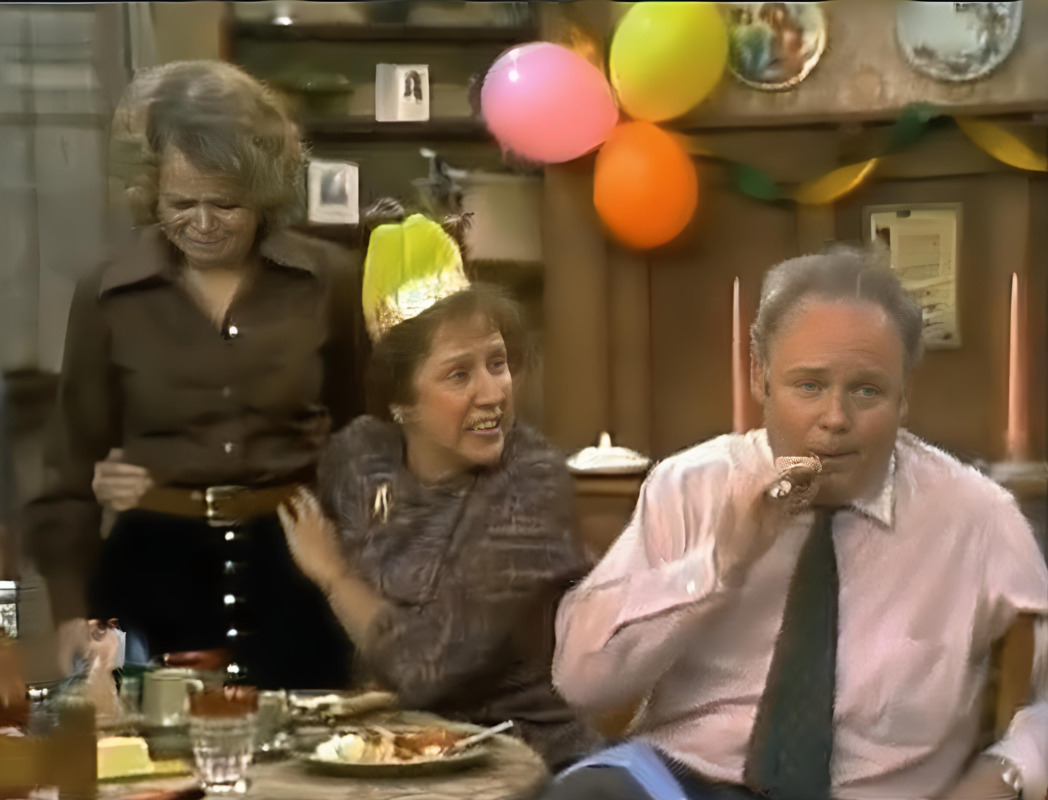
Renowned poet, author, and civil rights activist Maya Angelou has expressed her reservations about the iconic television show “All in the Family” and its use of comedy to address racism. Angelou, celebrated for her profound insights into the African American experience and social justice, raises important questions about whether humor is the right vehicle for tackling such deeply entrenched societal issues.
“All in the Family,” created by Norman Lear and aired from 1971 to 1979, was groundbreaking in its approach to bringing controversial social topics into American homes. The show featured Archie Bunker, a character with overtly bigoted views, played by Carroll O’Connor. The intention was to use Archie’s character as a satirical figure to expose and critique the prejudices of the time.
However, Maya Angelou argues that the comedic framing of such serious issues might not always achieve the desired effect. In a reflective discussion, Angelou elaborated on her concerns: “While ‘All in the Family’ was a pioneering show, we must ask whether humor can truly address the depth of racism. The danger lies in the possibility that the audience might laugh at the jokes without understanding the serious message behind them.”
Angelou’s critique highlights a critical issue in media and social commentary: the risk that satire and comedy may be misunderstood or even reinforce the very prejudices they aim to challenge. For some viewers, the humor associated with Archie Bunker’s character might lead to a superficial engagement with the issues, rather than the deep reflection necessary for change.
“Comedy can certainly bring awareness, but it must be wielded with great care,” Angelou continued. “Racism is a profound issue that impacts lives and communities. Presenting it through a comedic lens might sometimes trivialize the very real pain and injustice that it causes.”
This perspective aligns with broader concerns from other critics and scholars who have examined the impact of media representations on public attitudes. The fear is that without a clear and deliberate message, shows like “All in the Family” might not provoke the critical thinking needed to combat racism effectively.
Despite these criticisms, “All in the Family” remains a significant part of television history, credited with opening up vital conversations about race, gender, and social justice during a time when such topics were often avoided. The show’s legacy is a complex one, reflecting both its groundbreaking achievements and the limitations inherent in its comedic approach.
Maya Angelou’s reflections serve as a crucial reminder of the complexities involved in using media for social change. As television and other entertainment forms continue to evolve, her insights underscore the importance of thoughtful and nuanced approaches to addressing serious social issues, ensuring that the intended messages of critique and reflection are clearly communicated and understood.
